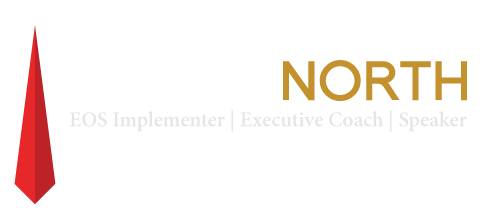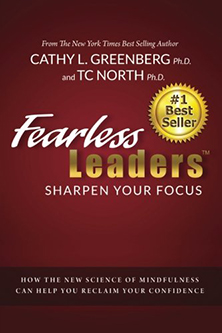This second video about Mindful Power™ focuses on understanding the three kinds of power and how power affects mindfulness. When we mention mindful power, we’re primarily referring to personal power. Here are the three types of power involved in interpersonal influence:
- Personal power. Your personal power is the power to be and express yourself in the world.
- Influential power. Your influential power is the strength of your ability to influence others.
- Positional power. Positional power relates to having authority over others. Examples include parents, teachers, coaches and managers.
When you combine incredibly strong personal power and mindfulness, you can change the world. One extremely poor 16-year-old girl did, and she was awarded the Nobel Peace Prize. Malala Yousafzai is from Pakistan, where females have few rights. Yet she had the personal power to stand up to the Taliban for what she believed — that all girls and women worldwide have the right to an education.
Malala’s is an incredible story of courage and personal power. She reminds us that personal power has nothing to do with age, gender, race or even one’s position in life. It’s all a force from within.
What do you think is the brain’s normal response to an increase in positional power? The answer from neuroscience research may greatly surprise you! You’ll learn the answer and be able to engage in the personal power exercise by either watching the video or reading the text below.
Join speaker agent Kim Tracy and me in learning about the effects of power and the importance of being mindful when powerful, by either watching the video of the interview that Kim originally produced, or by reading the edited text below, which was edited to enhance readability.
[vc_video link=”https://youtu.be/FpTUPsQ_-Lg”]
Kim: Hi I’m Kim Tracy with the Maxwell James Speaker Agency. So excited to have Dr. TC North talk about different kinds of power and how does power and mindfulness go together with leadership?
TC: Great. I love this topic. And it’s the mindful power work that we’re doing. Power, let’s talk about three kinds of power, Kim. There’s personal power – and personal power comes from within and has nothing to do with anything external to oneself. There’s influential power, which is how much can you influence me in our interactions and how much can I influence you or how much can we influence the world? That’s the second kind of power.
And third is positional power. In corporations it’s really obvious if I’m your manager, I’m your supervisor, I’m your leader, if you report to me, I have positional power over you. What’s been really interesting in the research on mindfulness, is that there is significant research on what happens when people increase their positional power.
What do you think happens when I go, up the corporate ladder? Do I become more mindful or do I become less mindful? Do I become more empathetic or less empathetic? What do you think is the normal brain response?
Kim: Well I already know the answer because you asked me this the first time we met. They actually become less empathetic even though I had said I thought people would become more empathetic.
TC: <laughing> You learn well!
Yes, that was very interesting to me. The normal brain response is to become less empathetic, less mindful as we increase in positional power. This is the old concept that power corrupts.
Absolute power corrupts absolutely is actually true and it’s the normal brain response. It’s hard to study the brain to actually get this information about empathy and these are pretty early pieces of research, but if you take a different group who is already what is called pro-social, (this means they’re already focused on the well-being of others, which is level two mindfulness – mindful of others), when you study that group and what happens when you increase their positional power they actually DO become more empathetic, not less empathetic. They become more mindful.
The work that we all are doing around training people in mindfulness as they are becoming more and more powerful in organizations is really critical work so that we have leaders in the end who are very mindful leaders not only with themselves and others, but also with the planet.
The one other piece I’d love to do with you today is talk about one of my favorite people. I want to talk about a 16-year-old girl who is a very poor girl. However, she used her mindfulness and her personal power to win a Nobel peace price and to change the perceptions of a lot of the world.
I’m talking about – and I always have trouble with her name – Malala Yousafzai. She is the 16-year-old Pakistani girl who fought for the right to be educated. Even though the Taliban warned her and told her not to go to school and not to talk out about girl’s and women’s rights and education, she continued to do so.
One day the Taliban came by and shot her in the head for it, left her for dead. The world embraced her, took her to England where she recovered, and she has continued to speak out for women’s rights for education around the world. She was awarded a Nobel peace prize for her effort.
So here is this poor Pakistani girl, no positional power, no influential power in the world but she has the personal power and the personal conviction to stand up for what she believes and look at what she’s now done. This girl has addressed the United Nations and now has influential power.
It all starts with personal power. I really wanted to mention this because a lot of people say “well I’m not in a position to have influence” or “I’m not in a position to have power”. Personal power has nothing to do with any of that.
Kim: Perfect. Do you have a tidbit that you would love to leave with our audience today?
TC: I think the tidbit I’d like to leave rather than a technique is an awareness. That all true power comes from within. Don’t seek power from outside. Seek to bring more power from inside and to develop yourself and bring that power to the world.
Kim: Perfect. If you would like to bring TC North in for an amazing keynote or workshop please contact me, Kim Tracy through MaxwellJames.net. Thank you.
TC: Thank you.
My speaker agent Kim Tracy at the Maxwell James Agency produced this video. Please contact her here if you’re interested in having me deliver a keynote, workshop or webinar on building confidence, personal power and becoming more mindful. Or contact me here if you would like to discuss personal work with me to build your confidence and presence.


